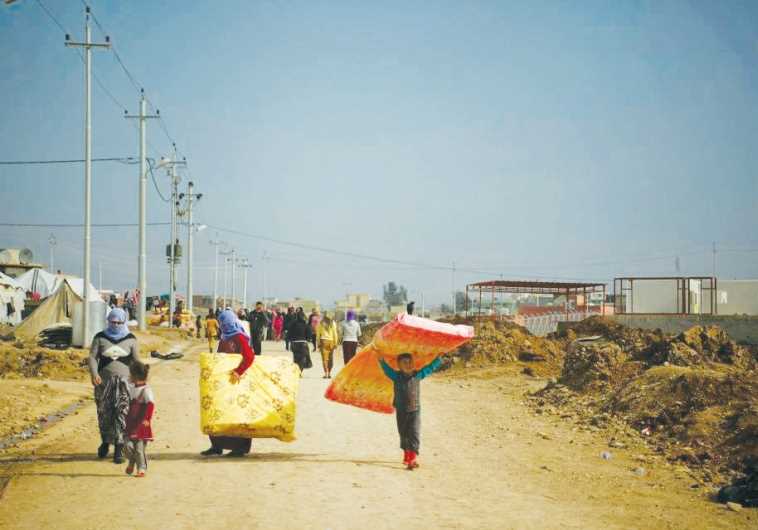From Kurdistan to Nepal: IsraAID makes a difference
IsraAID is involved in humanitarian efforts around the world, even in regions that are traditionally less friendly to Israel.
 Refugees in Dohuk, Iraqi Kurdistan, carry mattresses provided by IsraAid.
Refugees in Dohuk, Iraqi Kurdistan, carry mattresses provided by IsraAid.